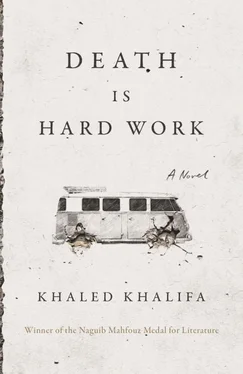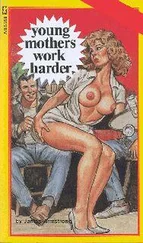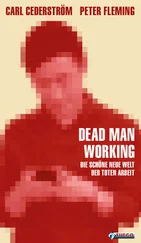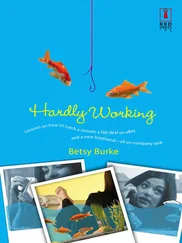Lamia wouldn’t listen when his father said that women shouldn’t attend the burial. She followed them, and all three hurried to the graveyard. The streets of S were deserted, and the smell of death wafted through the houses and alleys. The electricity had been cut off, and they were all enveloped in darkness. As they went through the narrow alleys, men were preparing to pray over the bodies. Lamia headed toward a group of women, relatives of the dead. Bolbol sat on a tombstone and watched from a distance. His childhood friends kissed him hastily in greeting and continued to where the men were completing the burial rites. The faces of the martyrs gleamed in the light of the full moon.
Lamia was still filled with rage as they left S. She cursed the regime with a wide variety of obscenities while Bolbol kept quiet, unsure how to make her feel better. She left him suddenly in the neighborhood of Baramkeh. She kissed him affectionately and hailed a taxi to take her to the bus depot, and then Bolbol was suddenly alone in the middle of the traffic, a small rabbit in a sea of people. The faces of the crowds around him were impassive, and he panted for deliverance.
Now Bolbol was staring outside the minibus, switching from one side of the road to the other. If this nightmare ever ended, and they ever reached Anabiya, he would wash his hands of the past entirely. He no longer had a father or a mother, and all links to his siblings would be severed for good. He would insist that his own son bury him in the nearest possible graveyard. He didn’t want anyone to read the Fatiha over his grave; what good did that do the dead? Everything the living did for the dead just highlighted the solitude of the dead and satisfied the vanity of the living; all that chatter in remembrance of a dead person’s good qualities was nothing more than jockeying for social position. Few would have objected if the three siblings had tossed their father’s body into a ditch, but perhaps they, too, were taking risks only in order to win admiring glances from their friends and neighbors. Those looks hadn’t meant much to them before, but now they could see themselves being consumed by the supposed nobility of their task. If they succumbed to such vanity, they could easily wind up joining the ranks of the self-righteous, those people who consider themselves worthy of passing judgment on everyone who can’t live up to their own high moral standards—a group united only by its isolation.
By now they were pessimistic about ever reaching Anabiya at all. Bolbol had switched roles with Hussein, who had taken on the role of the sensible older brother, praising his father and trying to keep Bolbol and Fatima calm. At the ninth checkpoint, the guards were actually kind to them. They told them to hurry if they wanted to reach Anabiya before midnight and pointed out where the next checkpoint would be. They said it belonged to the security services and advised the siblings to answer any questions briefly and without any obstruction; the agents manning that station were miserable, as they hadn’t been on leave in months. The siblings prepared themselves, and Bolbol left it to Hussein to decide whether to take the lane for goods or for passengers. Hussein stopped a few meters before the start of the bottleneck at the checkpoint and hurried to the officer in charge. He explained their situation and asked to be allowed to pass in view of their special circumstances, mentioning that the body had begun to rot. The officer came with him to the minibus and glanced at the corpse. He ordered them to go into the goods lane and kept hold of their documents. Hussein said, “When we get to the Free Army territory, everything will be easier. Our identity cards will help us to cross checkpoints quickly.” Fatima closed her eyes and murmured a prayer; it occurred to Bolbol, as he looked at her, that this journey had turned her into an old woman. Despair had crept into her heart. He said to Hussein that they still had a little money left, which might speed up their passage through the checkpoint and help them get their identity cards back. Hussein pointed coolly outside. They were trapped inside a lane closed off by huge cement blocks and couldn’t leave until all the cars in front of them had passed through; money wouldn’t do a thing.
Cars on the other side of the barrier were asking Hussein about the road ahead, and he replied wryly, “There’s always someone who knows the road, and everyone follows him.” A man who opened his car window was taken aback when Hussein yelled to him without warning that they were carrying a corpse, which was why they were in the goods lane. The man tried to avoid looking at them and continued his conversation with his corpulent wife, who watched them out of the corner of her eye. In a wave of black glee, Hussein asked the driver of another small car for an aspirin because the stink of the corpse had given him a headache. The man just fiddled with his steering wheel without replying to Hussein, who said to his siblings, “We have to have some fun. In a few hours we’ll all be dead of cold, or of the smell.” He turned up the volume of his tape player a little and began to drum out the rhythm of the songs. Fatima glared at him, but Hussein didn’t care. Bolbol prayed to all the gods that their task would end successfully, with everyone still sane. No one could predict Hussein’s reactions now, and Bolbol couldn’t complete the journey by himself. He needed Hussein to be in his right mind; he was more than familiar with this other face of his, which sneered at everything. Life had wounded him deeply; he had lost all his dreams, and his present was nothing but a nihilistic wait for nothing in particular. He would always be a private driver for a group of Russian dancers working in a club in Damascus, waiting outside their cheap hotel to convey them to the cabaret, coming back at four in the morning to bring them home again. His life had become one long errand. By day he worked as a minibus driver just to get out of his house.
It wasn’t for this that Hussein had broken with Abdel Latif. He’d dreamed of leading an empire, not of becoming a petty driver for a bunch of women who sometimes ordered him to pull over and negotiate with potential clients on their behalf. In those moments he felt like a disgusting insect or, as his father put it, a cheap pimp. He worked for free for a small, obscure gang that sold things on behalf of a large, well-known gang. They were connected to the Mukhabarat and worked openly to sell Russian escorts, hashish, cocaine, and heroin. But he was on the lowest level in this gang, with no hope of ascending to become a full member. Everything was finished, in his opinion. He was no good for anything anymore.
Hussein, persisting in his drumming, switched to the radio and began to sing along loudly to the Saria Sawas song playing. The solemnity and dignity of the presence of death was dispelled. Fatima looked at Bolbol, hoping perhaps that he would reestablish order. For his part, Bolbol was amused by what he saw and wished he could join in the singing; such futility could only be defeated by song and laughter. Often, he had seen people sitting silent and despondent at an ʿaza , avoiding one another’s gazes so they wouldn’t burst out laughing and ruin the mourning.
They would be waiting a long time if things carried on this slowly. The agents at the checkpoint were scrutinizing everything: identity cards, bags, cups. They examined the cars carefully, shooting out unexpected questions about the passengers’ occupations and intended destinations, questions that were normal in themselves but disconcerting when asked by an armed group of men more like a mob than an official squadron. They stood at the checkpoints with their fingers on their triggers. Their clothes and headscarves denoted sectarian affiliations; Hezbollah badges mixed with the green badges of the Iraqi Shiʿite groups who were working with the death squads established by the regime. There were no curbs on their behavior; they were entitled to pass judgment on any person for any infringement, execute them, and throw them in a mass grave, or else just leave them where they fell for their family to pick up and take away.
Читать дальше












